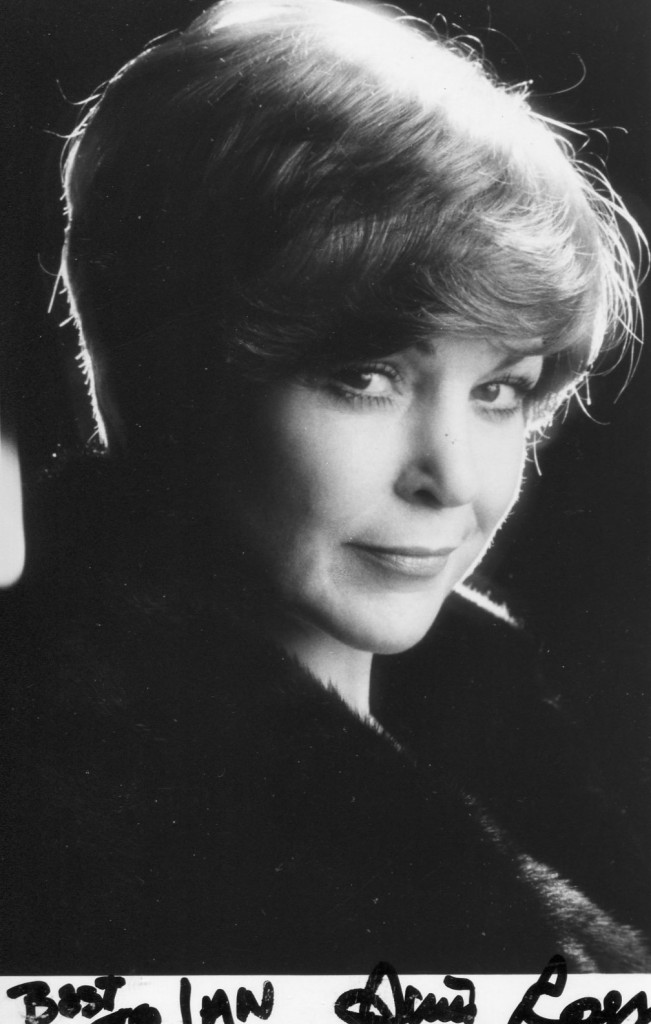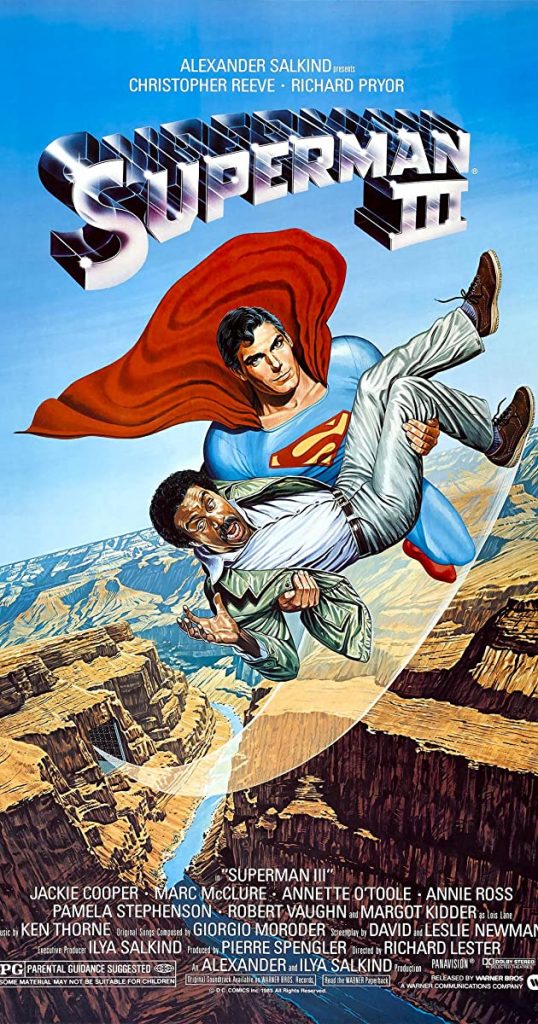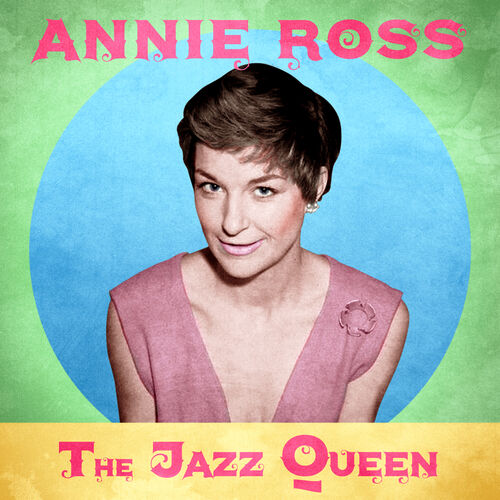
Guardian obituary in July 2020
The jazz singer Annie Ross, who has died aged 89, consistently brought the best out of good songs – and sometimes the best out of her expert admirers, too. The critic Kenneth Tynan memorably characterised the cool intelligence of Ross’s methods and manner as that of “a fallen angel”, and the Observer’s Dave Gelly once described her sound as exhibiting “a kind of dreamy watchfulness that is a definition of 1950s hip”.
London-born but raised in Hollywood by a jazz-singing aunt, Ross modelled her methods on the 40s vocal stars Ella Fitzgerald and Sarah Vaughan, as well as on the quicksilver instrumental melodies of that era’s bebop movement.
It was her spirited marriage of the instrument-mimicking 50s “vocalese” singing style that set her musical career alight as a 22-year-old in 1952, with a version of Wardell Gray’s instrumental song Twisted. Ross added a sardonically funny lyric that reflected both her abandoned-child anxieties and her self-possessed intelligence, featuring lines such as: “My analyst told me that I was right out of my head/he said I’d need treatment but I’m not that easily led”.
Joni Mitchell, Bette Midler and the jazz singer Mark Murphy would later make their own recordings of the hit, and its popularity helped Ross to pick up work with members of the jazz aristocracy such as Lionel Hampton, Gerry Mulligan and Chet Baker, as well as in the popular West End musical revue Cranks, which was staged at the St Martin’s theatre in 1956 and spawned an album of the same name.
Five years after Twisted there was another transformative moment in 1957, when Ross found herself in the role of vocal coach to the backing singers on a New York recording session devoted to vocalising the work of the swing big-band star Count Basie. It turned out that the singers were not up to the job, and so it was suggested that Ross and the venture’s initiators, Dave Lambert and Jon Hendricks, could rescue the project by overdubbing the vocal parts themselves – Ross imitating the trumpets and piano, while Lambert and Hendricks mimicked the reeds, low brass, bass and drums.
The outcome was the album Sing a Song of Basie (1957), which became a big commercial hit. As Ross told me in a 1996 interview for the magazine Boz: “Dave had said, ‘We’ll have to overdub. Will you do it?’ I said yes of course, even though I didn’t even know what an overdub was. So we did it all, and it was one of the greatest moments of my life when I heard those tapes back. I knew we had something incredible.”
Following the success of Sing a Song of Basie, the trio of Lambert, Hendricks & Ross was formed, and for five years they were one of the most innovative and commercially successful jazz-singing ensembles in history, touring the world and recording extensively with their lyrically inviting and virtuosically fast-moving brand of modern jazz. In 1962 they won a Grammy award for the album High Flying.
Though it was as an improvising singer that Ross expressed herself most vividly, in her later years she also acted, playing character roles in movies from Superman III (1983) to Robert Altman’s Short Cuts (1993), and she even did a voiceover for Britt Ekland in The Wicker Man (1973). “I don’t feel there’s a split between those two parts of my career,” she said. “All good actors are like singers, I think, working with others to make a great rhythm section.”
Born Annabelle Short in Mitcham, south London, Ross was the daughter of the Scottish vaudeville partners John “Jack” Short and May Dalziel (nee Allan), who performed as Short and Dalziel. One of four siblings, her brothers were Jimmy and Buddy Logan, who also took to the stage, the former as a successful comic and impresario, the latter as a singer. The family travelled to New York when Annabelle was four, and while out there she won a children’s radio contest. The first prize was a movie contract with MGM and so when her parents returned to Scotland they left her for good in the care of her mother’s sister Ella Logan (a singer) in Hollywood, where she grew up. As Annabelle Logan she sang Loch Lomond at the age of seven in the 1937 Hal Roach short movie Our Gang Follies of 1938, and she later played Judy Garland’s kid sister in the 1943 film Presenting Lily Mars.
Her aunt gave her a copy of Fitzgerald’s 1938 hit A Tisket a Tasket, thereby triggering the revelation that Fitzgerald’s agile vivacity “was what I wanted to sound like and sing like”. She soon realised that her vocal range allowed her to sing high for school choral music, but lustrously deep when she sang jazz alone in her room. She also discovered a talent for songwriting, when Let’s Fly – a song she wrote at just 14 – was recorded by the Tin Pan Alley singing star Johnny Mercer.
After leaving school she decided to go her own way – returning to the UK, adopting the stage name Annie Ross, and then moving to Paris, which by the late 40s was a popular refuge from homeland conflicts for African-American jazz musicians. She shared rooms with the great jazz composer and pianist Mary Lou Williams, gave birth to a son (Kenny Clarke Jr) from a short relationship with the bebop drummer Kenny Clarke, and joined the songwriter Hugh Martin’s vocal group, an experience that quickly honed her understanding of both ensemble singing and the songwriter’s craft.
Shuttling between Europe and the US in those years, Ross met Bob Weinstock, founder of the Prestige Records label, and he invited her to write a song in the style of the vocalese pioneer King Pleasure. Ross came back the next day with Twisted.
During her work with Lambert, Hendricks & Ross she also made a fine recording, in 1959, of the songs from the Stephen Sondheim-penned Broadway musical Gypsy, with Buddy Bregman’s Hollywood orchestra. However, by 1962, distracted by a heroin habit and in a stormy relationship with the comic Lenny Bruce, Ross quit Lambert, Hendricks & Ross.
She returned to London, kicked heroin with support from her brother Jimmy, married the actor Sean Lynch, and in 1964 opened a nightclub, Annie’s Room, which hosted several star singers including Nina Simone, Anita O’Dayand Hendricks. Following a bankruptcy in the mid-70s and a divorce from Lynch, she returned to stage and movie work, as well as occasional reunion gigs with Hendricks.
As an actor, as well as appearing in Superman III and Short Cuts she was seen in the 1972 Hammer thriller Straight On Till Morning and the 1983 British crime film Funny Money.
Ross became a US citizen in 2001, and a play by Brian McGeachan, Twisted: The Annie Ross Story, premiered in London on her 76th birthday in 2006, with a visibly moved and astonished Ross present.
She received the National Endowment for the Arts Jazz Master award in 2010, and made one of her late-career performances in 2011 at the Pizza Express Jazz Club in London at the age of 80. While no longer possessed of her legendary vocal athleticism, she was coolly charismatic still, cannily adapting slippery long tones into semi-spoken exclamations, but as alert to the rhythmic undertow of songs as ever.
Ross is survived by her partner, Dave Usher, and by Kenny.
• Annie Ross (Annabelle Short), singer, songwriter and actor, born 25 July 1930; died 21 July 2020Topics









